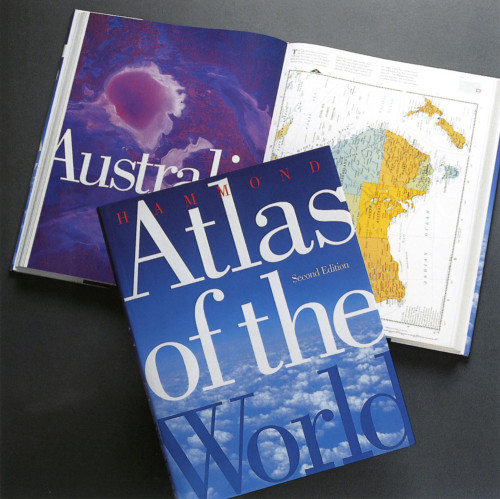
Hammond Atlas of the World
Pentagram Design, New York, New York, 1998
Description
The Atlas of the World was the result of an ambitious five-year effort that brought together designers, mathematicians, cartographers, editors, and digital technology. The maps were created using a new projection based on fractal geometry called Optimal Conformal Projection, developed for Hammond by Mitchell Feigenbaum, a noted physicist known for his work in chaos theory. The collaboration led to the creation of the most accurate maps yet published.
The computer-generated maps were placed on three-dimensional digital models of the Earth’s topographical features. The results are startlingly clear and textural. Pentagram’s designers were consulted to develop a very strict system of type and color usage that would enhance the information, and embrace cartography’s rich visual tradition. The atlas included an easily accessible index and introductory sections describing the world’s languages, religions, and environmental concerns as well as the theory behind the new projections.
Credits
- Design firm
- Pentagram Design
- Art director
- Michael Gericke
- Designer
- Su Matthews
- Publisher
- Hammond Inc.